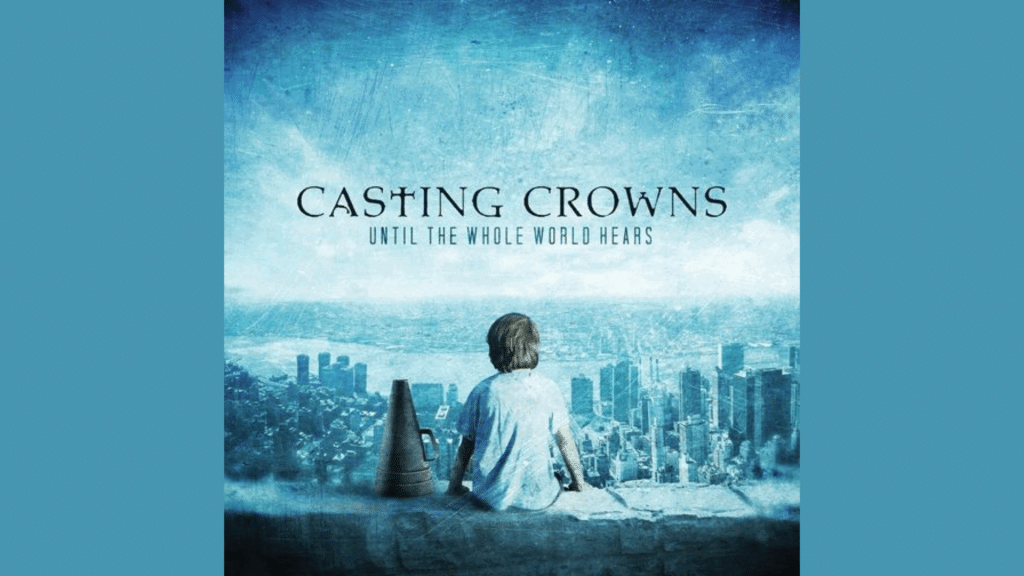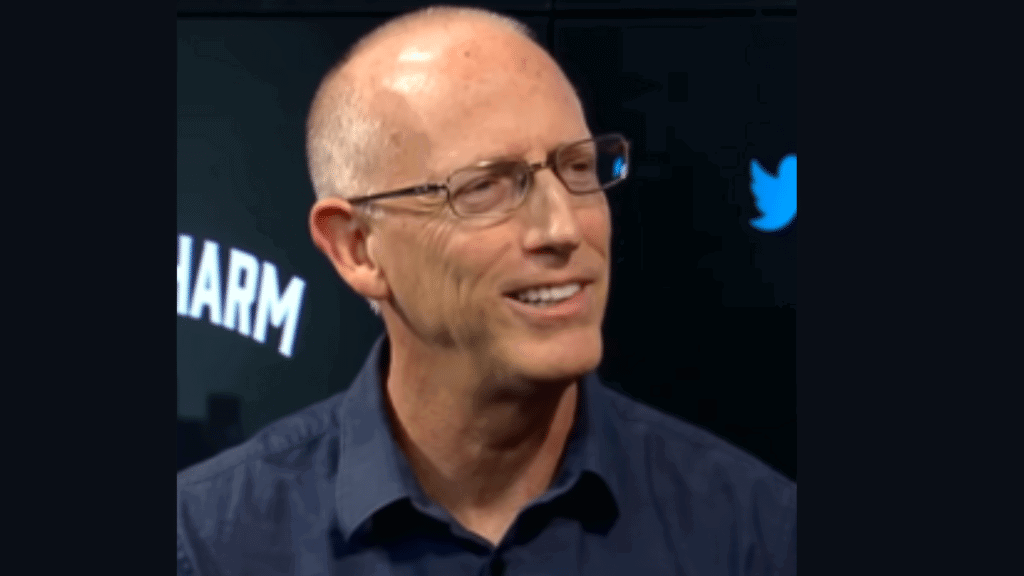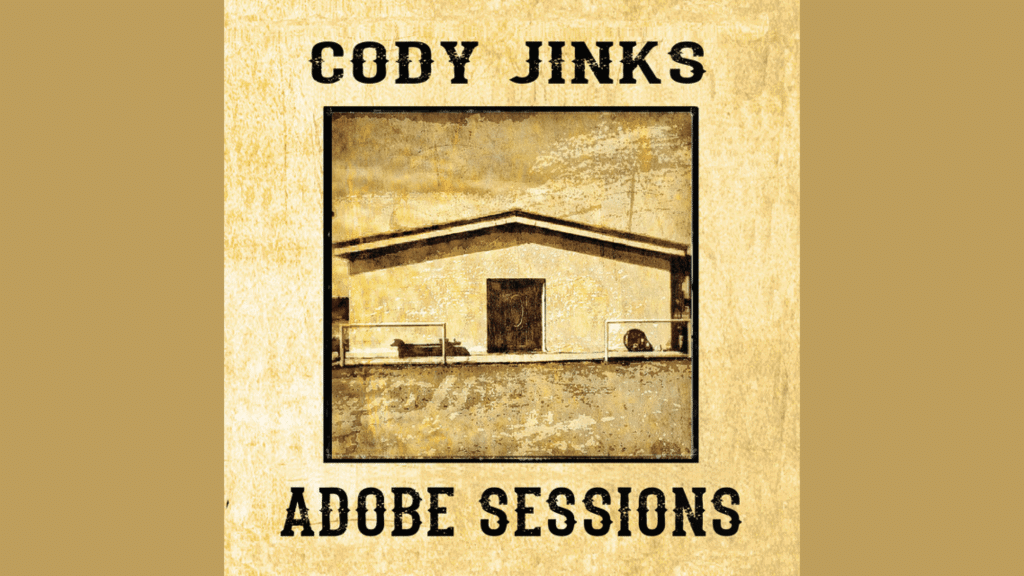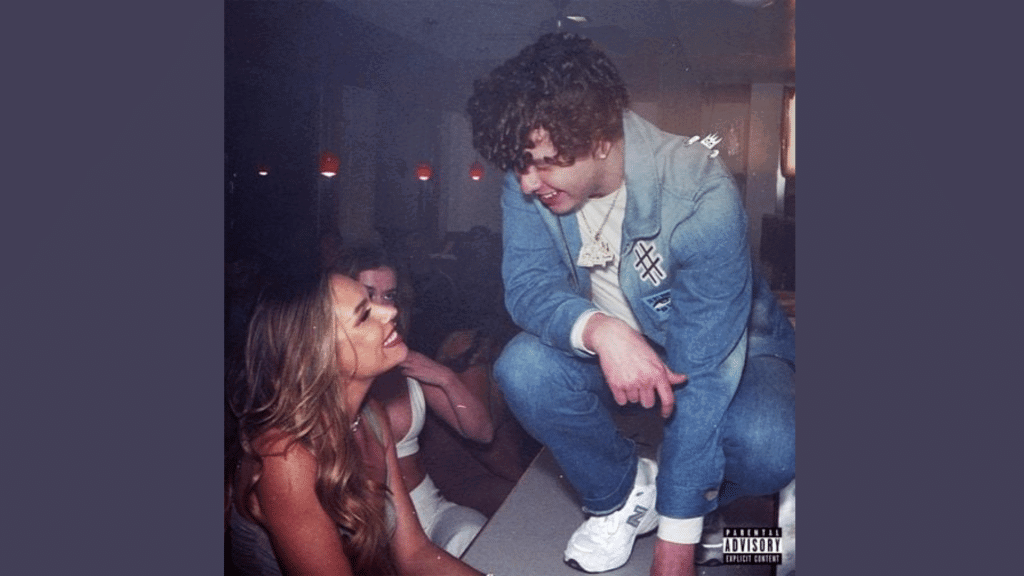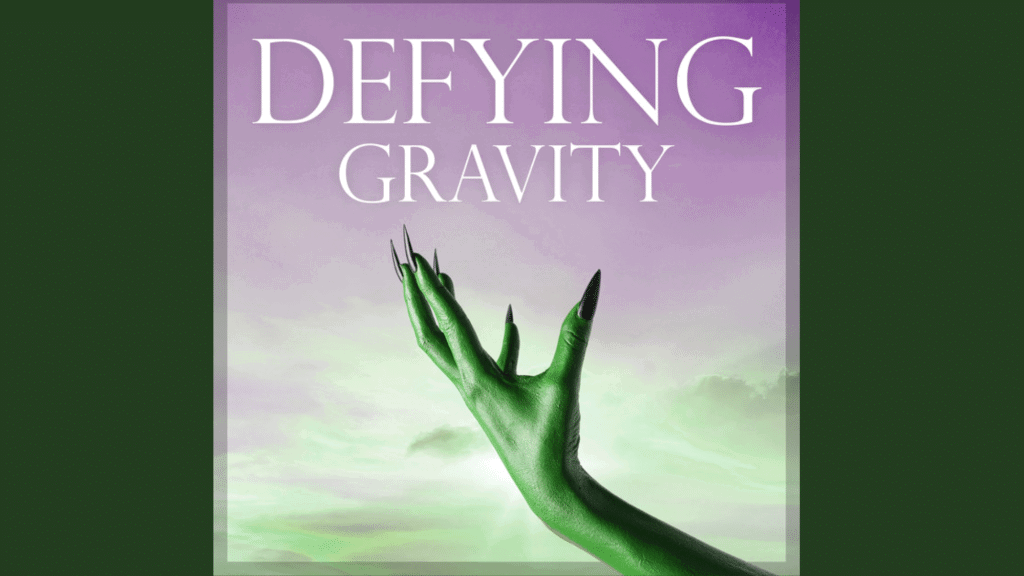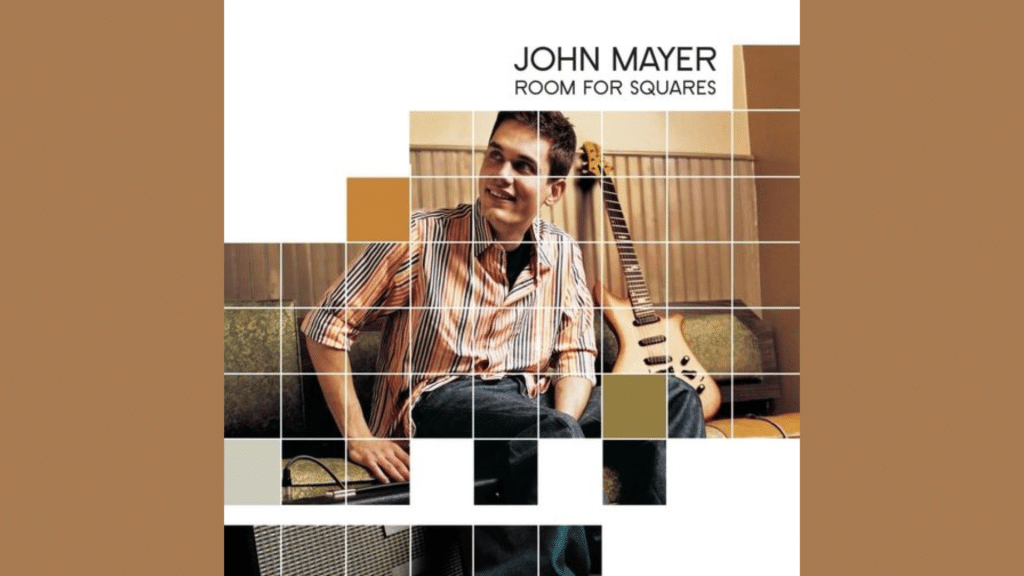Being a creative professional isn’t always easy on the wallet. One month you’re swamped with projects, the next you’re wondering when the next gig will come. Whether you’re an artist, designer, musician, or writer, the income often goes up and down. And that kind of uncertainty is stressful.
That’s why more and more creative people are looking for ways to bring in steady money on the side — and real estate is popping up as a popular choice. Creatives are buying rental homes, fixing up spaces to list on Airbnb, or even teaming up with friends to invest together.
Let’s talk about why real estate is becoming a smart side move for creative folks, what makes it a good fit, and how you can start.
Why Real Estate Appeals to Creatives
Here’s why real estate appeals to creatives.
It Gives You Steady Income
Being creative is fun, but let’s be honest — it’s not always easy when it comes to money. Some months you’re doing great, and other times it’s slow. That can be stressful, especially when bills don’t stop coming.
That’s why real estate feels like a good backup for many creatives. If you rent out a small place — or even just a room — you get paid every month. It’s regular money you can count on. That means you don’t always have to rush to find work or take on projects you don’t enjoy. You can breathe a little.
Eli Pasternak, Founder & CEO of Liberty House Buying Group, says, “Having steady income helps you feel more in control. It gives you the freedom to focus on your creative work without constantly worrying about money. And over time, it can grow into something big — something that supports you long-term.”
You Can Use Your Creative Talents
Real estate isn’t just about numbers or buying houses. There’s a lot of creativity in it too — and that’s where creative people shine.
If you’re good at design, you can make a place look amazing. If you’re a photographer, you can take great photos for a rental listing. Writers can write fun, catchy descriptions. Even small things, like how you set up a room or add little touches, can make a big difference.
Stephen Babcock, Founder and CEO of Babcock Injury Lawyers, mentions, “People love places that feel special. And creative folks are great at making things stand out. That means your rental might get more bookings — or even let you charge more — just because it looks and feels better.”
So instead of leaving your creative skills behind, you actually get to use them in a whole new way—and make money doing it.
You Don’t Have to Start Big
A lot of people think you need a ton of money to get into real estate — but that’s not true. You don’t have to buy a huge house or an apartment building to get started. Many creatives begin small.
Some rent out a room in their home. Others buy a small place with a friend or family member. Some even start with short-term rentals using a place they already live in.
Take Whitney Hansen, for example. She’s a creative entrepreneur and host of The Money Nerds podcast.
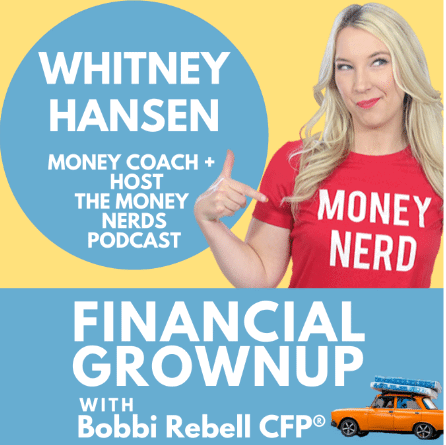
Image Source: Bobbi Rebell
She started small — just bought a home and rented out a couple of rooms while living in one herself. That extra money helped cover her mortgage and gave her more freedom to focus on building her creative business. No tricks — just smart use of space she already had.
Stories like hers show that you don’t need a huge investment to start. Even a small step can lead to steady income, and that steady income can give you more freedom to create.
“There are options like house hacking — where you live in one part of a house and rent out the other. It’s a smart way to lower your own living costs while earning at the same time,” says Scott Odierno, Partner of The Odierno Law Firm Accident and Injury Lawyers. Some people even try real estate investing apps or put money into something called REITs, which lets you invest in property without buying a home.
The point is, you don’t need to be rich or have everything figured out. You just need to start small and learn as you go. Real estate can grow over time, just like a creative career does.
It Gives You More Freedom in the Long Run
One of the biggest reasons creatives love real estate is because it can give them more freedom. When you earn extra money from property—whether monthly rent or long-term profit—you’re not relying 100% on client work or gigs to survive. That means you can say “no” to things that don’t excite you and “yes” to things that do.
Over time, if you keep investing smartly, real estate can even replace a big part of your income. That doesn’t mean you stop being creative—it just means you have more space to create without pressure. No more taking on low-paying jobs just to keep the lights on.
Many creatives dream of having time to work on personal projects, passion work, or just enjoy life more. Real estate can help make that happen. It’s not about becoming a landlord full-time — it’s about giving yourself options.
You Can Team Up With Others
You don’t always have to do it alone. Many creatives team up with a friend, partner, or family member to buy a place together. It helps split the cost, lower the risk, and makes the whole thing feel less scary.
Let’s say you and a friend both want to invest, but don’t have enough money to do it solo. You can pool your savings, buy a small place, fix it up, and rent it out. One person might handle the design, the other handles the money side. It becomes a creative project with real rewards.
This kind of teamwork works great for creatives because many of us are already used to collaborating — whether it’s in music, film, design, or art. Real estate can be just another team project, but one that brings in steady income over time.
Tariq Attia, Founder of IW Capital, shares, “You don’t need a perfect plan or tons of experience. You just need trust, a shared goal, and a little patience.”
It Helps You Build Wealth Over Time
One of the best things about real estate is that it grows in value. Over time, the property you buy today could be worth a lot more down the road. That means not only are you earning rent, but you’re also building something that could really pay off later.
For creatives who often don’t get retirement plans or stable benefits, owning property or an NFT is a smart way to build long-term security. You’re not just working for money — you’re letting your money work for you, explains Bill McCormick, President of NRT Specialty Trailers.
A great example of this is Joseph Gordon-Levitt, the actor and founder of the creative platform HITRECORD. He’s well known for his work in film, but he’s also quietly built a strong real estate portfolio over the years.
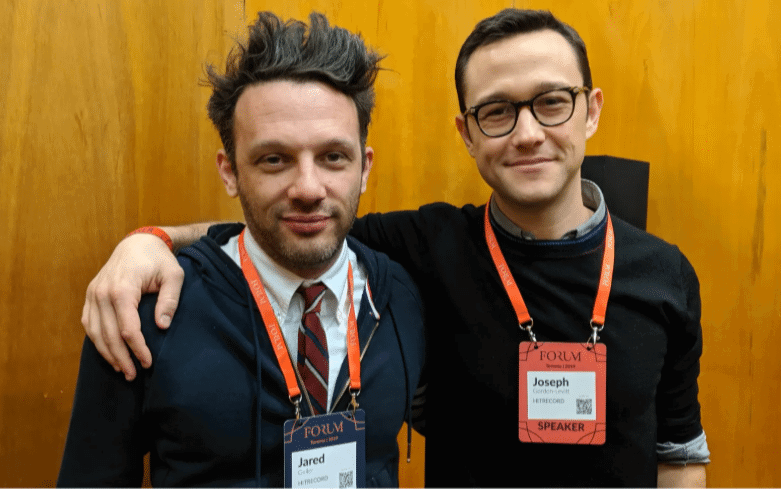
Image Source: VentureBeat
He’s bought several properties in Los Angeles, including a home in the Silver Lake area, which grew in value while he focused on both acting and creative business ventures.
It Gives You Space to Create
For a lot of creatives, space matters. Whether you’re a painter who needs a quiet studio, a filmmaker needing a shooting spot, or a musician looking for a soundproof room — having your own space can make a big difference. Real estate gives you the chance to create that space.
Pali Banwait, CEO of Strive Consultants, says, “Some creatives buy a small home or apartment not just to rent out, but to use part of it for their work. You can turn a garage into a studio, a spare room into an editing bay, or a basement into a podcast setup. And if you’re renting it out too, it can help pay for itself.”
You’re not just investing in a building — you’re investing in a place where your creativity can grow without limits. And when you own the space, you don’t have to worry about landlords, rent hikes, or being told to leave.
You Stay in Control
One of the hardest parts of being creative is feeling like you’re not in control. Clients come and go. Projects get cut. Income changes fast. But with real estate, you have more control over your money, your time, and your life.
You decide when to rent, how to decorate, how much to charge, and who to work with. You’re not waiting on someone else to give you a job or approve your work. It’s your space. Your rules.
Even if it starts small, it’s yours to grow. And that feeling — that you’re building something solid — is best. It’s not about leaving your creative life behind. It’s about having more freedom to keep going with it, on your terms, explains Dan Close, Founder and CEO of BuyingHomes.
How to Get Started in Real Estate as a Creative Professional
Here’s how to begin.
Start Learning
You don’t have to take a full course or become a real estate expert overnight. Just start learning slowly. Watch YouTube videos from real people who share how they bought their first rental. Listen to podcasts like BiggerPockets.
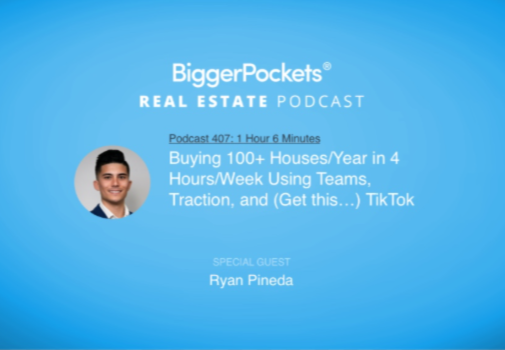
Image Source: BiggerPockets
Follow real estate pages on Instagram or TikTok where people share tips in an easy way. Read blogs or listen to stories from other creatives who’ve done it.
Davin Eberhardt, Owner of Grow Eat and Repeat, mentions, “You’ll be surprised how many musicians, writers, artists, and filmmakers talk about real estate helping them find stability. A little learning here and there adds up.”
Look at What You Already Have
Before thinking about buying anything, look at what you already have. Do you have an extra room? A basement that could be turned into a studio or guest space? A shed that could be cleaned up and rented as a work space?
Some people start by renting out one room in their home. Others list their place on Airbnb when they travel. These small steps can help you dip your toe into the water without going all in, says Adam Fard, Founder & Head of Design at AI Wireframe Generator.
And if you live in a rented space, you can still learn the ropes, maybe by helping a friend manage their rental or looking into small investing options like REITs (Real Estate Investment Trusts), which are kind of like stocks but for property.
Save a Little Every Month
Buying a place takes money — but it might not take as much as you think. If you save a bit each month, over time it builds up. Some people use “first-time homebuyer” programs to help with the down payment. Others team up with a friend to split the cost.
According to Ben Karlovich, Founder of Stove Top Protectors, “You don’t have to go straight into buying a house. Start saving like you’re thinking about it, and when the right opportunity comes, you’ll be ready.”
Start Small and Simple
You don’t need a five-bedroom house or a fancy apartment. Many creatives start with something small: a studio, a one-bedroom, or even a fixer-upper that they can slowly improve. Some buy duplexes, live on one side, and rent the other. It’s called “house hacking” — and it’s one of the most common ways to get started.
The goal isn’t to impress people. It’s to create a steady income that helps support your creative life.
Use Your Creative Skills
Here’s the fun part—you already have something most real estate investors don’t: creativity. That’s a huge win.
Use your design sense to decorate the space in a way that stands out. Use your photography or video skills to take amazing listing photos. If you’re a writer, write a great description that makes the place feel warm and special. If you’re into branding, you can even name your Airbnb rental and give it a whole look and feel.
Morgan Dejoux, President of Granger Historical Picture Archive, adds, “Your creative eye helps your property attract better guests or renters—and that often means more income.”
Final Thoughts
Real estate seems like a big deal, but it’s really not. Lots of creative people are slowly getting into it — one step at a time. Some rent out a room, others buy a small place with a friend. You don’t need a lot of money or experience to begin. What matters is starting small and learning as you go.
It’s not about giving up your creative work — it’s about adding something steady on the side. Over time, it can give you more freedom, more choices, and less stress about money. And that’s something every creative person can use.



